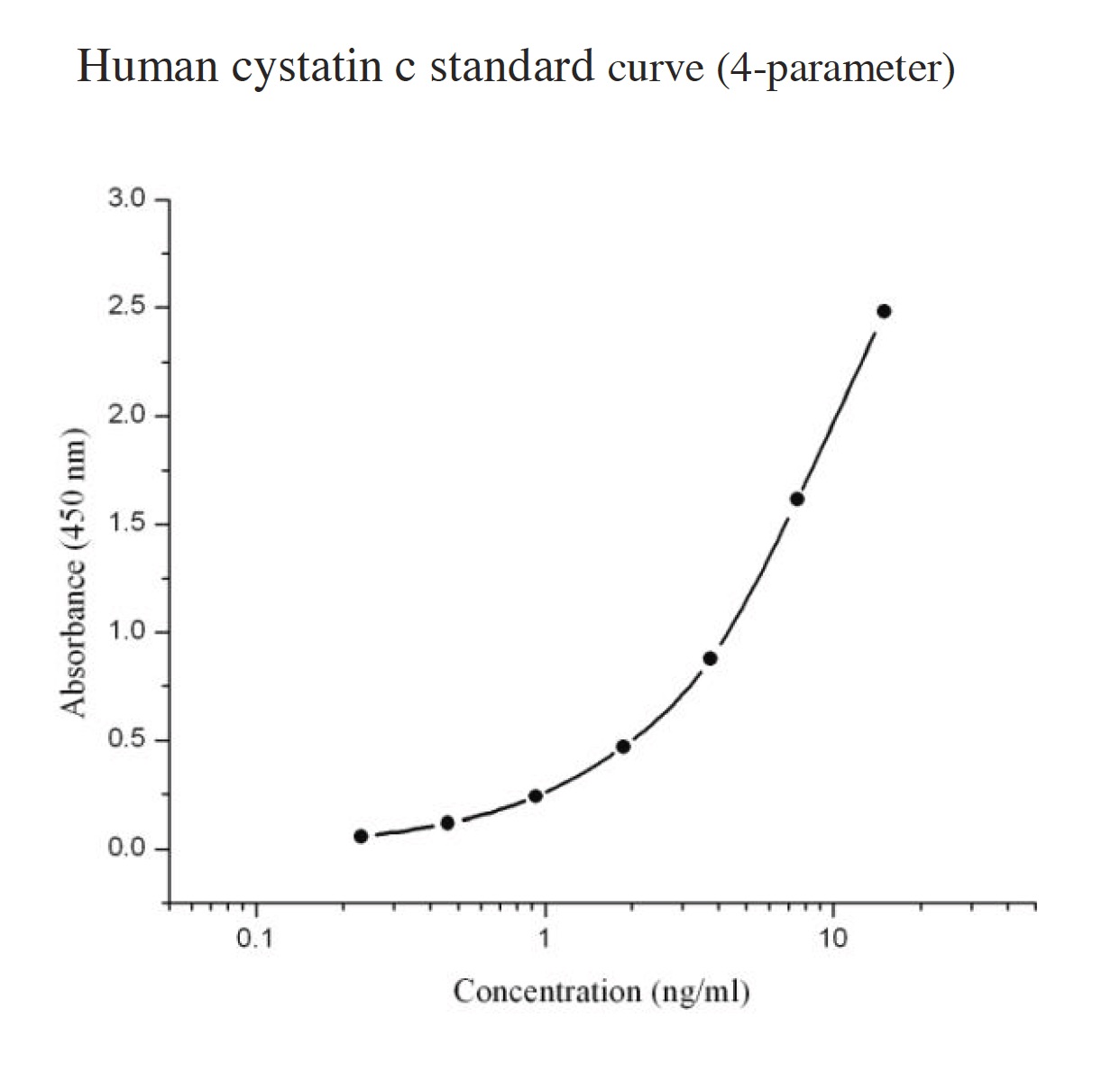Rapid Cystatin C ELISA Assay Kit
The Rapid Cystatin C ELISA Assay Kit is For Research Use Only
Size: 1×96 wells
Sensitivity: 0.23ng/mL
Standard Range: 0.23ng/mL-15ng/mL
Incubation Time: 45 minutes
Sample Type: Serum, plasma, and urine
Sample Size: 100 µl
Alternative Names: Cystatin 3
Assay Principle
The Rapid Cystatin C assay is a sandwich ELISA designed for the quantitative detection of human cystatin c in samples in 1 hour. The immunoplate is pre-coated with antibody specific to human cystatin c. Standards and samples are pipetted into the wells and any human cystatin c present is sandwiched by the immobilized antibody and a second horseradish peroxidase (HRP)-linked antibody specific to human cystatin c that is co-incubated with the samples. After wash step to remove any unbound substances, the HRP substrate solution is added and colour develops in proportion to the amount of human cystatin c bound initially. The assay is stopped and the optical density of the wells determined using a micro-plate reader. Since the increases in absorbance are directly proportional to the amount of captured human cystatin c, the unknown sample concentration can be interpolated from a reference curve included in each assay.
Related Products
Total FGF-21 ELISA Assay
cTerminal FGF-21 ELISA Kit
SDMA ELISA Assay Kit



